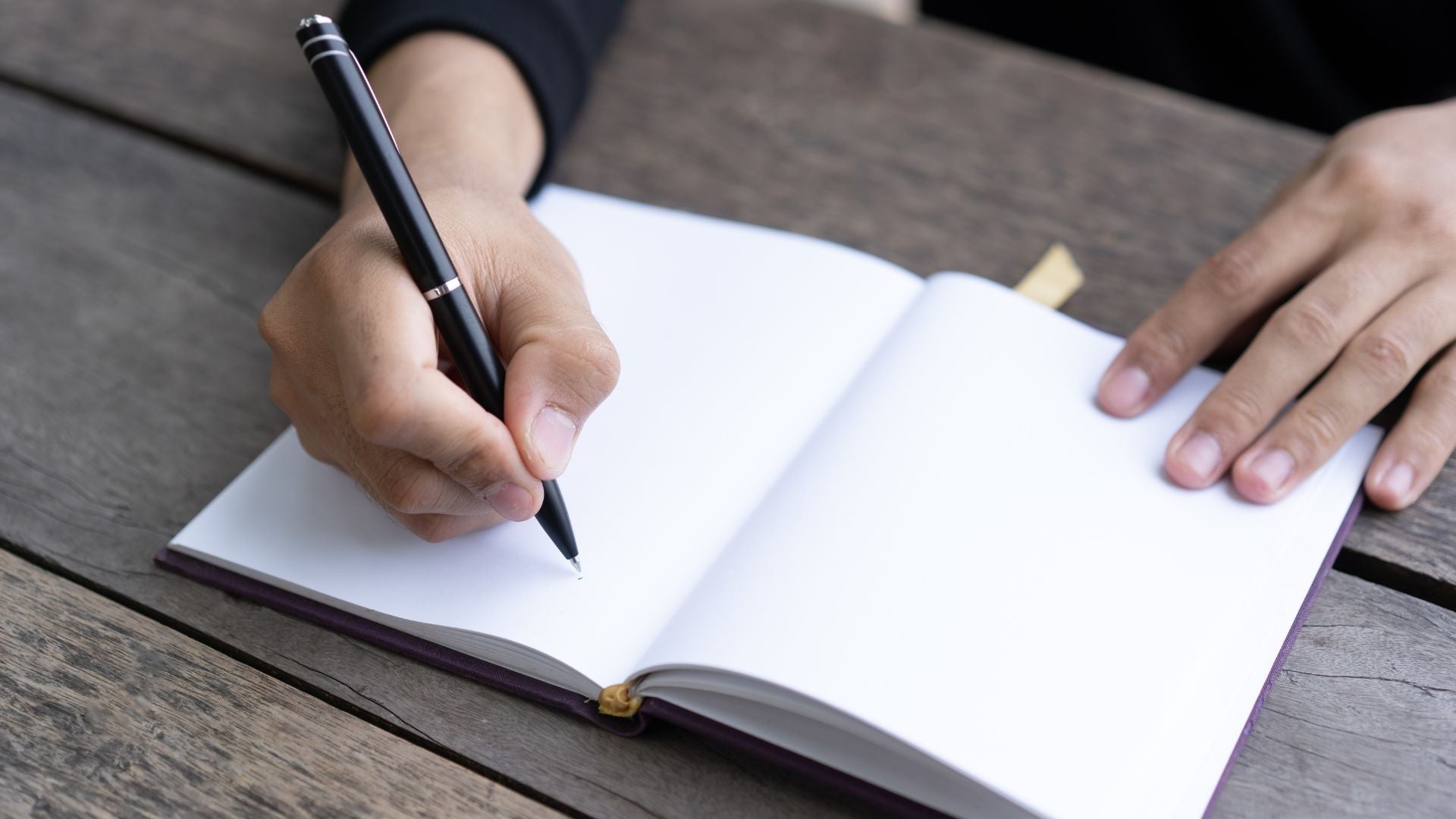Handwriting is at the top of the so-called “endangered” human activities list, as it is very likely to become extinct shortly. Advanced technologies with smartphones and computers have become so prevalent in our daily routine that they have almost replaced some of the most traditional activities, such as writing.
Writing some notes or keeping a personal diary has been outdated by modern technologies that reduce time, free more space, and make every process appear faster than the traditional way.
But wait a minute! There is a significant price that we all have to pay when eliminating traditional activities such as handwriting of our lives. According to plenty of different studies, there are a lot of brain-friendly benefits in handwriting that you can’t get by typing or touching screens.
Of course, there isn’t any argument against typing or touchpads! We all have to integrate these modern tools in our lives. On the other hand, we must respect the benefits of handwriting, a spiritual process which proves how much storytelling is valued. There is a vital link between writing and building a successful life. And these are 10 essential reasons found by Epica experts to explain why handwriting is so valuable to our mental state of mind!
1. Handwriting strengthens our memory
Whatever you’re writing on paper demands 100% focus and attention, as well as you have to be very motivated to write something. Before the existence of computers, the writing process was the most common way to keep our memory in shape. The extensive use of computers and other smart devices do not allow us to use the full power of our consciousness to refresh and write things down. Through technology we can keep a considerable amount of disparate information in different ways, which we can easily retrieve whenever needed. This process of writing vs typing slows down our memory and its capability of concentration, allowing us to remember and build something specific on paper. The antidote is this: preserving memories through journaling - considered one of the most effective ways to keep your mind fresh.

2. Handwriting helps us foster ideas
The human brain is the perfect tool. A high-speed and adaptive machine that works fast – going forward and backward at the same time, all the time. Our mind forces us to keep up with our ideas; otherwise, they vanish into oblivion. This tells us that writing is the most powerful way to preserve our inspiration. Starring endlessly into a PC screen with lots of tabs open on your internet browser sets your mind on auto-pilot, eliminating your motivation to write what you initially thought. Just put away your devices for a moment, grab a pen, and follow your ideas. Let all your thoughts come to mind, as the particular words and phrases guide you to free your inspiration while you’re writing in your classic leather journal with unlined pages.
3. Handwriting Is A Form Of Therapy
Contemporary science and a significant amount of writers support handwriting as an effective therapy form. Handwriting allows for reflection and progress, and there are various forms of therapeutic writing. Scientists believe that through the exchange of ideas, confessions, and sharing of secrets, we reach a high level of self-consciousness, which helps to express our inner self, see the best and worst versions of ourselves, and even accept our true identity. Here are great 6 Reasons Why People Who Journal On a Daily Basis Are Happier!
4. Handwriting improves learning
They say that taking notes by hand improves comprehension, concluding that laptop note takers’ tendency to transcribe lectures verbatim rather than processing information and reframing it in their own words is detrimental to learning. Handwriting forces us to use all our learning repertoire combined, as we try to think a piece of specific information, then form the text on our minds and, finally, to use the appropriate combination of words in written form. The more we write something, the possibility of learning increases. And if we manage to repeat this process often, we train our learning skills in the best possible way.
5. Handwriting helps those with dyslexia
Deborah Spear, an academic therapist, based in Great Falls, tells the Washington Post that cursive writing is an integral part of her work with students who have dyslexia. "Because all letters in cursive start on a baseline, and because the pen moves fluidly from left to right, cursive is easier to learn for dyslexic students who have trouble forming words correctly." Dyslexia has significantly increased nowadays while kids are closer to smartphones and tablets, and on the other hand, they do less handwriting work. Schools must get the best out of the handwriting process through activities that naturally reflect the child’s interest and willingness to learn. Journaling is one of the most creative methods to heal mental problems as we have written in a previous article about journal therapy – writing to heal.
6. Handwriting ensures that our to-do lists will get done
Regarding handwriting lists and achieving goals, researcher Dr. Jordan Peterson tells Forbes: "It appears possible that writing, which is a formalized form of thinking, helps people derive information from their experiences that help them guide their perceptions, actions, thoughts, and emotions in the present... Clarifying purpose and meaning into the future helps improve positive emotion, which is associated with movement towards important goals...."
Write your to-do list in a simple checklist and try to follow the order by delisting whatever has completed. That’s an effective way to be organized and solid with your tasks. And believe us, that feeling when you just have accomplished your plan is priceless.
7. Handwriting can effectively soothe your nerves
As Dr. Marc Seifer, a graphologist and handwriting expert, suggests, writing a soothing sentence is a type of "graphotherapy." How does this work out? Writing on a classic leather journal with lined pages a simple sentence such as "I will be more peaceful" at least 20 times per day can affect your mentality and gradually established as a way of behavior. "This actually calms the person down and retrains the brain," Seifer says. Because writing is a mental process that can calm your brain down, makes it a perfect winding-down activity at night.
8. Handwriting sharpens critical thinking
Choosing the appropriate words can be a difficult proposition. Choosing this word instead of another creates a dilemma that exposes ourselves to critical thinking. When you write by hand in your journal, in comparison to typing or even touching a screen by finger, it allows you to think more thoroughly about the information you’re recording. Furthermore, handwriting encourages you to expand upon your thoughts and form connections between them.

9. Handwriting eases depression and anxiety
Don’t wait for inspiration and happiness knock on your door to write something. Use handwriting as medicine every time you feel emotional, depressed, or anxious. When you’re feeling sad or stressed, materializing your thoughts by writing in your journal can be a fantastic therapy that will help you overcome your fears and be calmer against every confusing situation. And of course, since you connect to words more when you write them out, you can also process a problem more easily when you put it to paper.
10. Handwriting makes you a better writer
Advice about writing can be really useful! But sometimes exercise and repetition are the most appropriate answer.
In a 1995 interview with the Paris Review, writer Susan Sontag said that she penned her first drafts the analog way before typing them up for editing later. "I write with a felt-tip pen, or sometimes a pencil, on yellow or white legal pads, that fetish of American writers," she said. "I like the slowness of writing by hand." Novelist Truman Capote insisted on a similar process, although his involved lying down with a coffee and cigarette nearby. "No, I don't use a typewriter," he said in an interview. "Not in the beginning. I write my first version in longhand (pencil). Then I do a complete revision, also in longhand."
A 2009 study from the University of Washington seems to support Sontag, Capote, and many other writers' preference for handwriting: Elementary school students who wrote essays only with a pen not only wrote more than their keyboard-tapping peers, but they also wrote faster and in more complete sentences. And as best-selling author, Heather Killough-Walden tells us in her guest blog for Epica readers, “I begin every book the same way. Every single one begins with a swoosh and a click. The swoosh of a leather-bound journal opening fluidly to a fresh, lined page – and the click of a pen.”
Bonus Reason #11. Writing is a natural extension of reading

Conclusion - how to get started
Handwriting may be considered a little bit old-fashioned in this era, but it’s not about writing faster or easier. Above all, handwriting is an important activity that benefits many aspects of our mind, body, behaviors, and reactions. There is no need to get rid of smartphones and computers or be fanatical about handwriting. Just find your suitable custom journal and use it as a practical daily organizer: things-to-do, thoughts, even an inspiring quote you’ve heard of are enough to keep your hand and mind in shape. Ready to get started but not quite sure how to begin? Read this excellent article for some great tips on How to Create Your Perfect Writing Environment.
Did you enjoy this article? If you like to write by hand or have experienced these or other benefits, we’d love to hear from you! And, in appreciation, we'll send you a $20 promo code to use on any Epica journal purchase.









12 comments
Stephanie Rodda
This article was week written and extremely helpful as I’m preparing to teach a workshop on journaling as a spiritual discipline.
Samantha Robinson
This was a terrific article. It just confirms what I have been saying all along about handwriting. As a former teacher, I’m old school and believe that our handwriting makes us unique. The computer is good, but let’s reach a happy medium and not throw everything that has worked and is good out for the sake of progress.
Suzanne Grant
I agree with what’s been said! I keep a handwritten diary. Typing is faster, true, but it’s sterile. It’s like drawing and coloring with a graphics tablet. There’s no hands on effort, you don’t need to think how to form a letter or shape. When writing, you have to think about what words to use, you may have to rewrite to produce a polished piece. With a computer, the spell check and grammar check does that for you. There’s not much thinking involved! Yes, I see the irony in writing this comment electronically…
Harold t
Writing does allow a form of emotional thoughts to be released. My problem is getting it down on paper before it’s a lost thought, very frustrating indeed.
Shauna
I love to handwriting. I still write letters daily to my family and friends. It is my favorite thing to do. Learning new ways to write and get creative inspire me to want to write more. I have journals filled with so many of my thoughts and feelings.